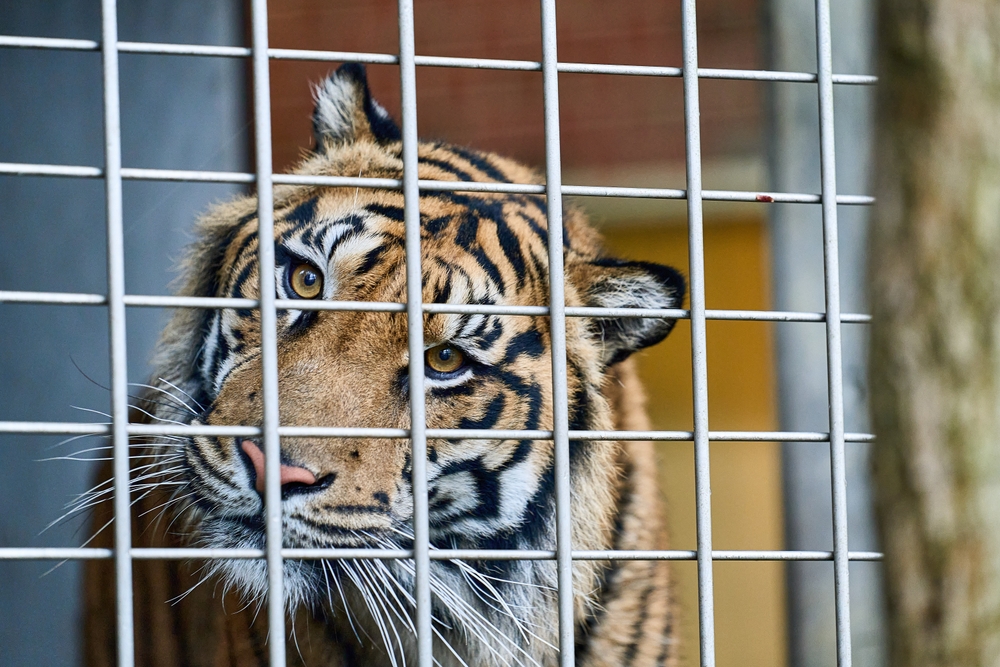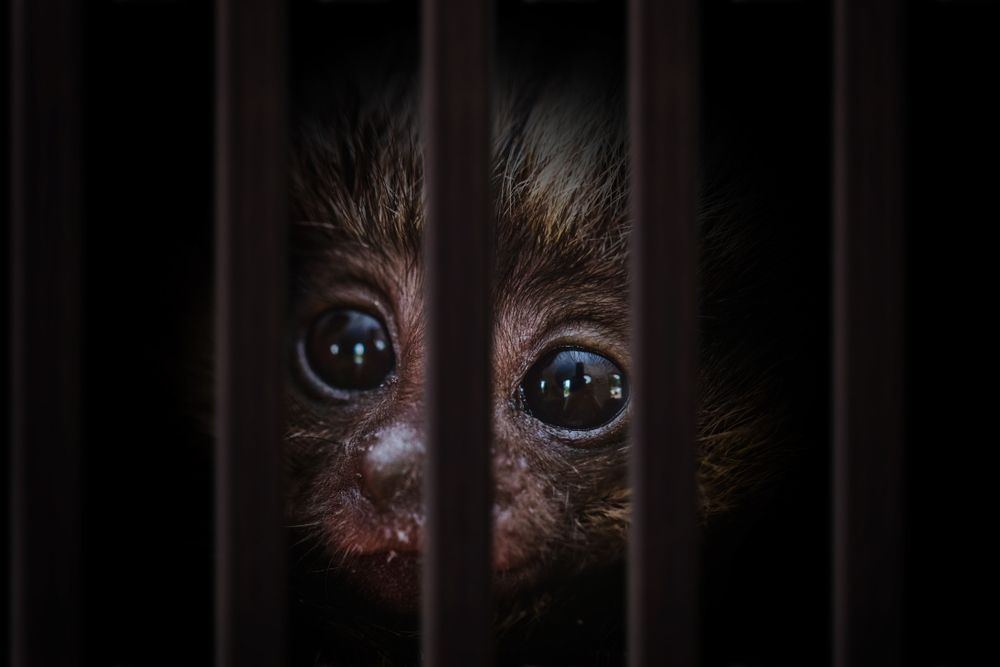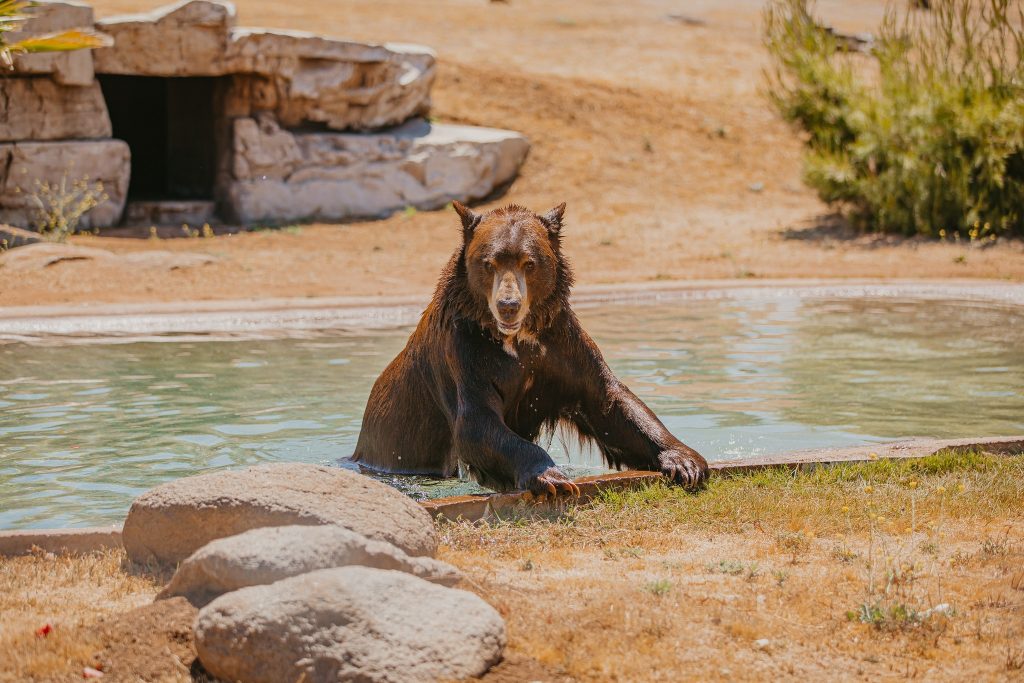

On the road, you often see a roadside attraction that makes you want to pull over to see playful monkeys, majestic tigers, lion cub petting, and more. These attractions might seem innocent, but they hide something incredibly disturbing: the unethical use of wild animals for monetary gain. Seeing these animals in such events may leave you wondering why they aren't in the wild, or how they ended up in these roadside zoos instead of a true accredited sanctuary.
Most of the animals you see at roadside shows were once in the wild but were captured to be used for commercial gain. Captivity didn't start recently, it has become a way of life for most animals, including big cats, as this practice has been going on for centuries. Initially, people could capture wild animals and take them to zoos to fascinate visitors.
Over time, most public zoos stabilized and didn't have to capture more animals from the wild. Instead, they adopted prolific breeding programs, growing captive populations to levels that strained their capacity and budget. Surplus animals eventually found a way into the world of wildlife trafficking, or private ownership for increased breeding, abuse, and commercialization.
Today, these animals are commonly seen at roadside zoos, shopping malls, magic shows, and in people's basements, backyards, and garages. Animal abuse is rampant in these "zoos", and most captured animals in these places suffer immense emotional stress due to their earlier separation from their mothers.
The babies or cubs interact with humans constantly for bottle-fed shows and photo opportunities, disrupting their normal development and causing excessive anxiety.
Suppose you are a tiger cub, deprived of your mother's security and comfort and thrown into the public full of cameras and unfamiliar hands.
While these interactions seem harmless to humans, the animals find them very stressful. The cubs crave their mothers' guidance, the freedom to roam in a natural environment, and social interaction with similar animals for mental stimulation. Instead, people treat them like living toys and disregard their needs for commercial gain.

These animals are often kept in cramped cages where they experience boredom and anxiety. For example, a grown lion meant to explore vast savannas will be confined in a space smaller than a single parking space.
Such confinement strips these wild animals of the enrichment they thrive on, such as mental stimulation, climbing structures, and swimming in large bodies of water. In the wild, these animals have the freedom to roam through expansive natural environments, which allows them to engage in behaviors essential for their well-being.
They can camouflage, explore diverse terrains, and interact with other species, all of which are crucial for their mental and physical health. By depriving them of these opportunities, confinement significantly diminishes their quality of life and natural instincts.
Besides, most of these animals receive inadequate food, shelter, water, and veterinary care, which greatly endangers their health. Instead of a specialized diet, they get inferior and unhealthy alternatives, which typically lead to serious health problems, including malnutrition.
Captured animals deserve a diet similar to that in the wild to obtain the nutrients needed for healthy living. Unfortunately, private ownership facilities never meet these highly-specialized dietary needs.
Some facilities use the term 'private ownership' to justify the domestication of exotic animals. However, private ownership of bears, big cats, and other types of wild animals needs to be reconsidered.
The animals have intricate social needs that require vast spaces to move and satisfy their innate, natural instincts. Confining them in a domestic animal park is incredibly difficult, as their strong wild instincts can pose a serious public safety risk, even while in private surroundings.
People are attracted to these places because they claim to rescue or help the species in the wild by providing them a sanctuary. However, most places are dealers, breeders, and exhibitors who exploit the public's generosity and goodwill at the expense of the animal's wellbeing.
Private ownership and roadside zoo establishments often prioritize profit over animal welfare. They rarely consider crucial factors, such as the cost of caring for exotic animals with specialized diets, medical costs, nor do they consider providing them with spacious facilities.
In some cases, amusement parks enclose animals, allowing them to be zoos that benefit from tax breaks. Such organizations sacrifice the overall well-being of animals for additional dollars.
Unfortunately, the public has been misguided to believe that a captive animal facility, particularly one containing wild animals, is a sanctuary. Those operating such fake sanctuaries thrive on this deception to trade wildlife and obtain financial contributions from the unsuspecting public.
The primary purpose of an animal sanctuary is to ensure animals have a comfortable and safe surrounding that provides a setting that's as natural as possible. A legitimate, accredited animal sanctuary doesn't sell or breed animals. It also doesn't allow direct interaction between people and animals, such as cub petting and moving them to the roadside for public display.
A true sanctuary rescues and provides care and shelter for injured, abused, or neglected animals. These facilities have no commercial trade, intrusive research, or unsupervised public visitation. Besides, wild animals can't be removed from these sanctuaries for education, exhibition, or research.

The constant demand for interacting with exotic animals encourages a dangerous culture. The ongoing display of cubs and other baby animals for photo ops expands a market that relies on breeding various endangered species or alienating young animals from their mothers.
This practice puts individual animals at risk and also leads to the decline of an endangered wild population. However, accredited and reputable sanctuaries don't breed animals. Instead, they focus on providing a permanent lifetime safe haven for rescued animals.
Before providing support to animal sanctuaries, always ensure they have an accreditation from a reputable organization, such as the Federation of Animal Welfare Societies (FAWS), the Global Federation of Animal Sanctuaries (GFAS), GuideStar, or the American Sanctuary Association (ASA).
Accreditation is essential because it ensures these facilities adhere to the expected standards of animal care with a focus on rehabilitation, rescue, and availing a permanent home to abandoned animals.
Lions Tigers & Bears is a true accredited exotic animal sanctuary committed to upholding the highest standards for animal welfare as provided by accredited organizations.
Our sanctuary embraces accountability and transparency in its undertakings. It always submits detailed tax documents and financial statements to relevant bodies and stakeholders. This documentation highlights all of our financial activity and shows how we appropriate all the resources. Further, we are always open to scrutiny to reveal our commitment to the community and animals that we serve.
Lions Tigers & Bears is committed to providing a lifetime safe haven to abandoned and abused exotic animals while advocating for an educational process to end the commercialization and exploitation of these animals.
The success of this animal sanctuary is entirely thanks to the support of our members, generous donors, educational visits, and fundraising events. Show your love for these wonderful animals by donating today to help us continue our mission.

Ph: 619.659.8078
Fx: 619.659.8841
[email protected]
24402 Martin Way, Alpine, CA 91901